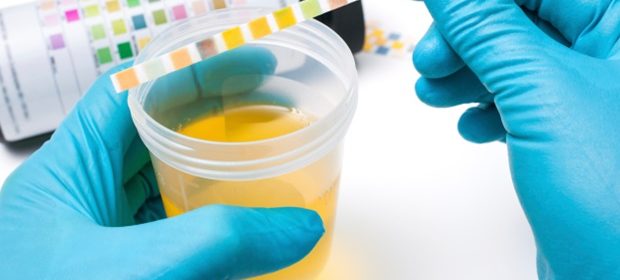methotrexate causes kidney lesions

The backward flow of urine from the bladder to the ureters is called vesicoureteral reflux (VUR) and it is a medical condition mostly seen in the pediatric population. VUR may be primary or secondary, if it occurs in the presence of a normal or dysfunctional urinary tract, respectively.
Patients may present with several signs and symptoms, depending on their age. Very young infants may present with a failure to thrive, diarrhea, anorexia, vomiting and lethargy. Older children may complain of vague abdominal discomfort as well as the signs and symptoms that accompany a urinary tract infection (UTI), such as burning, frequency and urgency of micturition.
In order to diagnose VUR, a series of tests is usually required. Laboratory investigations including urinalysis may be ordered to confirm the presence of a UTI. Urine analysis is supplemented by the use of imaging tests, which form the basis of the entire investigation into the cause of VUR. Especially in the case of secondary VUR, more in-depth diagnosis may employ the use of urodynamic studies to ascertain the functionality of the urinary tract.
Urodynamic studies are done with the help of a manometer which measures the pressure inside the bladder, thus helping to assess its functioning. This information includes results on the filling pressures of the bladder as well as its compliance, capacity and contractions. These tests are very useful in patients with secondary VUR etiologies such as neurogenic bladder, or in male children who have posterior urethral valves.
Urine Analysis
This is imperative to determine the presence of a UTI. Urine may be obtained via suprapubic aspiration of urine, urethral catheterization, midstream urine collection, or bag collection. In a suprapubic aspiration, any microorganisms growing are considered highly significant, but this procedure is not very popular in practice. Better specificity is obtained when urethral catheterization is used, in which case 1000 or more colony forming units (CFUs) per ml is considered significant for the presence of infection.
The collection of midstream urine is usually possible in children who are adequately toilet trained. 100 000 or more CFUs per ml is considered a significant finding in this type of sample. In very young infants, or where toilet training has not yet been achieved, bag collection is a possible method for urine collection. However, this sample is the least reliable when compared to the others and may still require urethral catheterization samples; thus, it may not be done at all in order to save time and increase the reliability of the results.
Imaging
Imaging is important to detect any underlying structural abnormalities of the urinary system. An ultrasound of the kidneys, ureters and bladder (KUB) employs the use of sound waves at a high frequency to produce an image of the internal structures. Ultrasound may also be used during pregnancy to detect hydronephrosis, which may raise suspicions that the child may be affected by primary VUR.
In addition to sonography, a voiding cystourethrogram (VCUG) may also be done, whereby the radiologist uses intravesicular contrast dye and takes X-rays of the bladder in various positions while it is filling and emptying. Similar to the VCUG, a radionuclide scan may be conducted, which uses radioisotopes as opposed to a contrast dye.
References
- http://www.mayoclinic.org/diseases-conditions/vesicoureteral-reflux/basics/tests-diagnosis/con-20031544
- http://www.childrenshospital.org/conditions-and-treatments/conditions/v/vesicoureteral-reflux-vur/testing-and-diagnosis
- https://radiopaedia.org/articles/vesicoureteric-reflux
Further Reading
- All Vesicoureteral Reflux Content
- Vesicoureteral Reflux (Primary and Secondary)
- Vesicoureteral Reflux Research
- Voiding Cystourethrogram
- Can Vesicoureteral Reflux be Inherited?
Last Updated: Feb 27, 2019

Written by
Dr. Damien Jonas Wilson
Dr. Damien Jonas Wilson is a medical doctor from St. Martin in the Carribean. He was awarded his Medical Degree (MD) from the University of Zagreb Teaching Hospital. His training in general medicine and surgery compliments his degree in biomolecular engineering (BASc.Eng.) from Utrecht, the Netherlands. During this degree, he completed a dissertation in the field of oncology at the Harvard Medical School/ Massachusetts General Hospital. Dr. Wilson currently works in the UK as a medical practitioner.
Source: Read Full Article